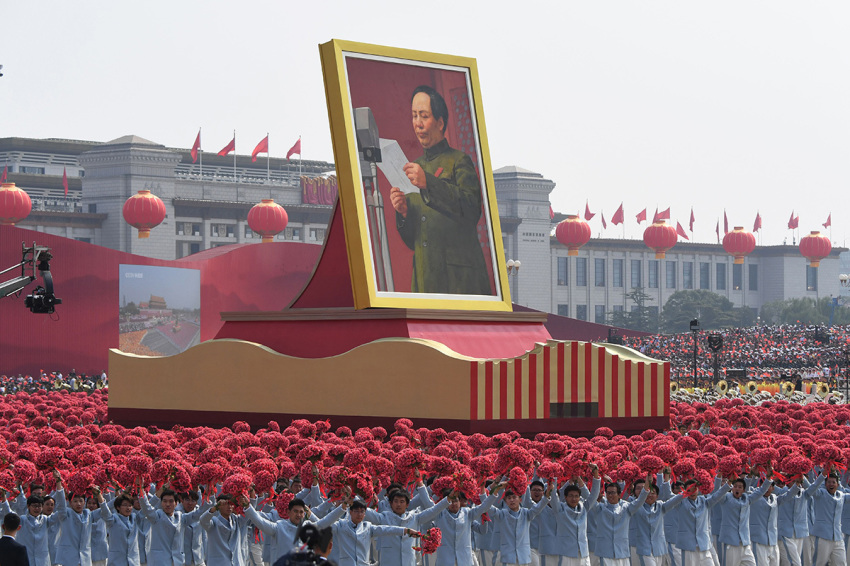China unilaterally appoints bishop to Shanghai in violation of Catholic Church agreement: Vatican

Chinese authorities have appointed a new bishop to the largest Roman Catholic diocese in China in violation of a bilateral agreement between the Holy See and China, the Vatican says.
The Chinese Communist Party-controlled Council of Chinese Bishops appointed Bishop Shen Bin from Haimen, in Jiangsu province, as the new bishop of Shanghai.
"The Holy See had been informed a few days ago of the decision of the Chinese authorities" to transfer the Bishop and "learned from the media of the installation this morning," Matteo Bruni, the director of the Holy See Press Office, said in a statement shared by Vatican News last Tuesday. "I have nothing to say about the Holy See's assessment of the matter."
The Council of Chinese Bishops is headed by Shen himself and is not recognized by the Holy See, the Catholic news agency AsiaNews reported.
The Shanghai diocese said on its website that around 200 people attended the inauguration ceremony for Bishop Shen. Shen wants to "continue to carry forward the fine tradition of patriotism and love of the Catholic Church in Shanghai" and to "adhere to the principle of independence and self-government."
The Vatican renewed a controversial agreement with China last October, initially enacted in 2018. The agreement allowed the government to submit candidates for bishop offices but supposedly gave the final say to Pope Francis.
"The Vatican … is committed to continuing a respectful and constructive dialogue with the Chinese Party for a productive implementation of the Accord and further development of bilateral relations, with a view to fostering the mission of the Catholic Church and the good of the Chinese people," the Holy See Press Office said at the time.
The first deal was signed with the hope of bringing peace between the underground congregation loyal to the pope in China and the state-backed official church. In the agreement, both sides acknowledged the pope as the supreme leader of the Catholic Church for the first time since the 1950s.
The unilateral appointment of Bishop Shen comes only months after the Vatican accused Beijing of violating the bilateral accord by installing a bishop in a diocese not recognized by the Holy See.
The Chinese embassy in Rome has not yet responded to the Vatican's statement.
The bishopric of Shanghai has been vacant since the death of Bishop Jin Luxian in April 2013. While the Holy See has stated that the city's auxiliary bishop, Ma Daqin, should administer the diocese, he has been under house arrest since 2012 for publicly rejecting the Chinese Catholic Patriotic Association, the Communist body governing the local Church.
In an interview with Vatican News published after the October 2022 renewal of the agreement, Cardinal Secretary of State Pietro Parolin said that the two-year renewal "mainly concerns aspects that are essential to the daily life of the Church in China."
"Pope Francis — with determination and patient foresight — has decided to continue along this path not under the illusion of finding perfection in human rules, but in the concrete hope of being able to assure Chinese Catholic communities, even in such a complex context, of the guidance of pastors who are worthy and suitable for the task entrusted to them," said Parolin.
"The ultimate goal of this journey is for the 'little flock' of Chinese Catholics to advance in the possibility of living serenely and freely their Christian life, which is made up of the proclamation of the Gospel, solid formation, joyful celebration of the Eucharist, as well as an industrious witness of charity, in order to be close to those who struggle the most to cope with life, as was the case during the difficult time of the pandemic."
Critics of the agreement between the Vatican and China argue that the appointment of only six new bishops since the deal's signing is evidence that it is not yielding the desired results. They also point to the increasing restrictions on religious freedoms in China for Christians and other minority groups.
Former U.S. Secretary of State Mike Pompeo stated in September 2020 that religious freedom conditions for Catholics in China had only worsened in the two years since the agreement was first adopted.
"The Vatican endangers its moral authority, should it renew the deal," Pompeo tweeted at the time.
The U.S. State Department has long listed China as a country of particular concern for tolerating or engaging in religious freedom violations.
Open Doors USA, which monitors the persecution of Christians in over 60 countries, estimates that China has more than 97 million Christians, many of whom worship in unregistered or "illegal" underground churches.
The five state-sanctioned religious groups in China are the Buddhist Association of China, the Chinese Taoist Association, the Islamic Association of China, the Protestant Three-Self Patriotic Movement and the Chinese Patriotic Catholic Association.
Even the organizations affiliated with the five authorized religions can be subject to surveillance and monitoring.
In 2018, the communist regime released a document titled "China's Policies and Practices on Protecting Freedom of Religious Belief." It declared that Chinese faith communities should adhere to the direction of localizing the religion, practice the core values of socialism, develop and expand the fine Chinese tradition and actively explore the religious thought which accords with China's national circumstances.



























